Find Help
More Items From Ergsy search
-

Will the state pension amount change with the age increase?
Relevance: 100%
-

Is there a difference between the basic State Pension and the new State Pension?
Relevance: 86%
-
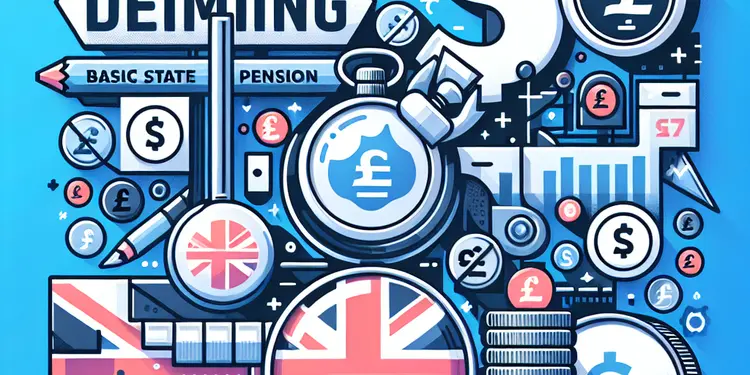
How do I claim the basic State Pension?
Relevance: 78%
-

Will I qualify for the new state pension?
Relevance: 78%
-

Who is eligible for the basic State Pension?
Relevance: 77%
-

State Pension UK | How much will I get? | WILL IT LAST FOREVER?!?
Relevance: 76%
-
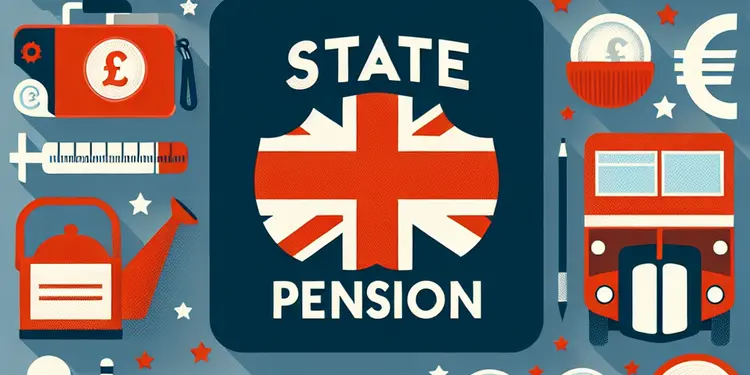
Is the basic State Pension enough to live on?
Relevance: 76%
-
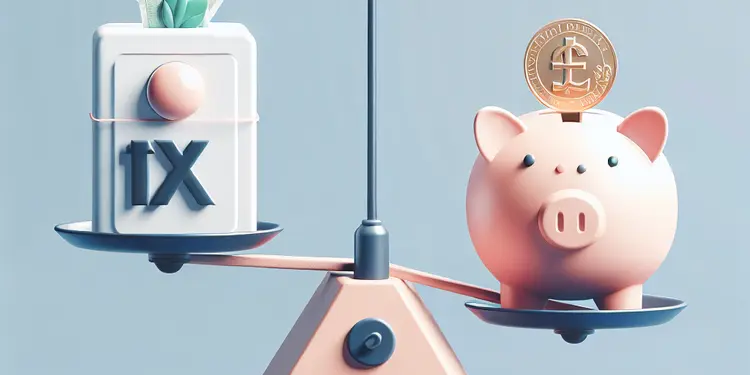
Do I pay tax on the basic State Pension?
Relevance: 75%
-
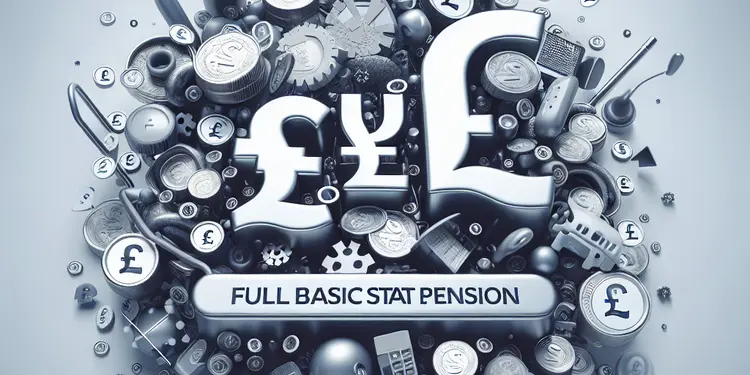
How much is the full basic State Pension per week?
Relevance: 74%
-
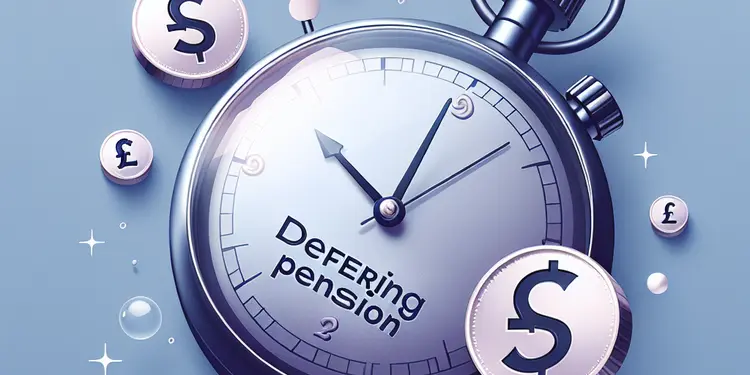
Can I defer my basic State Pension?
Relevance: 74%
-
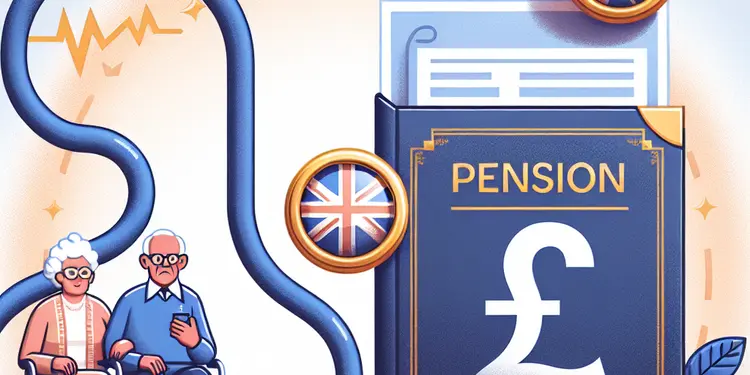
Can my spouse inherit my basic State Pension?
Relevance: 74%
-
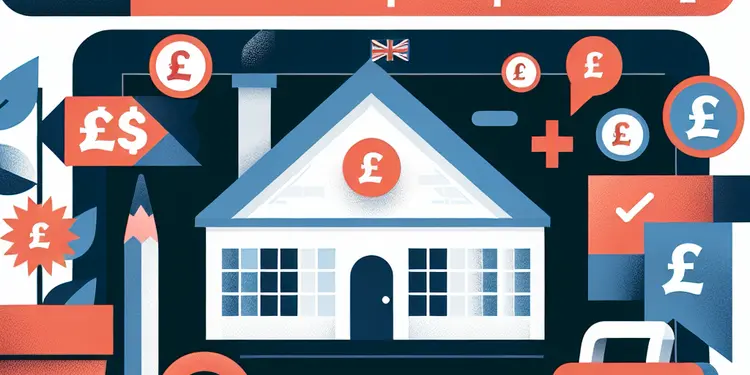
Can I get the basic State Pension if I’m self-employed?
Relevance: 74%
-

When will the state pension age increase to 67?
Relevance: 71%
-
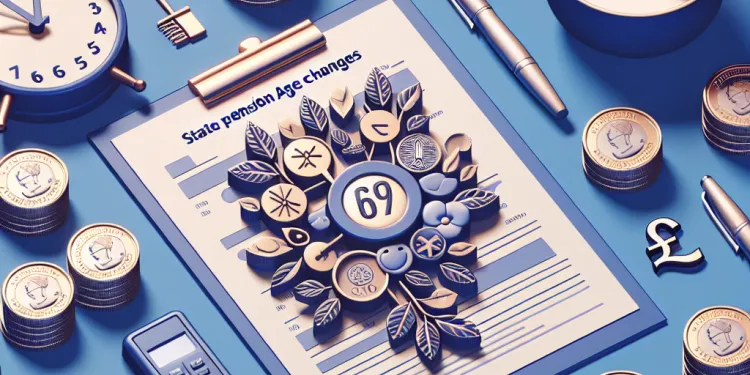
What are the state pension age changes in 2026 in the UK?
Relevance: 70%
-

What is the state pension age in the UK in 2026?
Relevance: 70%
-

How much extra will I get if I defer my basic State Pension?
Relevance: 69%
-
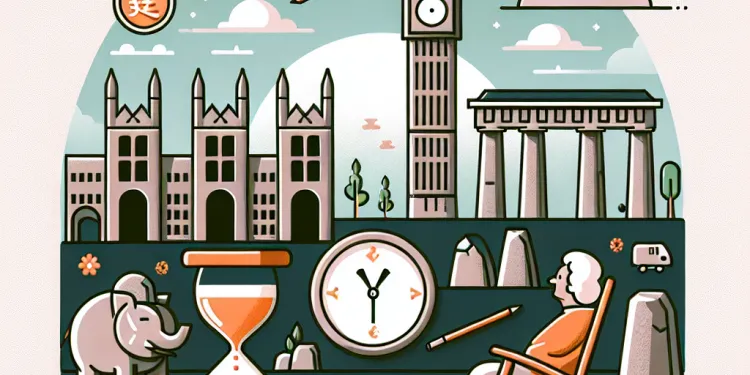
What is the new planned state pension age after 2028?
Relevance: 69%
-

Are there any changes to the state pension age in 2026?
Relevance: 67%
-
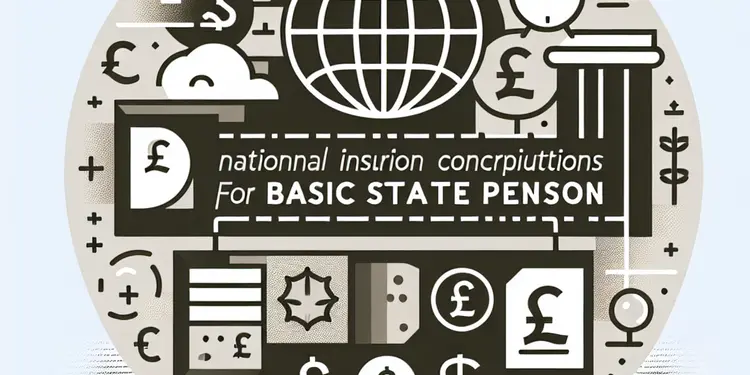
How many National Insurance contributions do I need for the basic State Pension?
Relevance: 67%
-

Can I receive the basic State Pension if I have less than 30 qualifying years?
Relevance: 67%
-
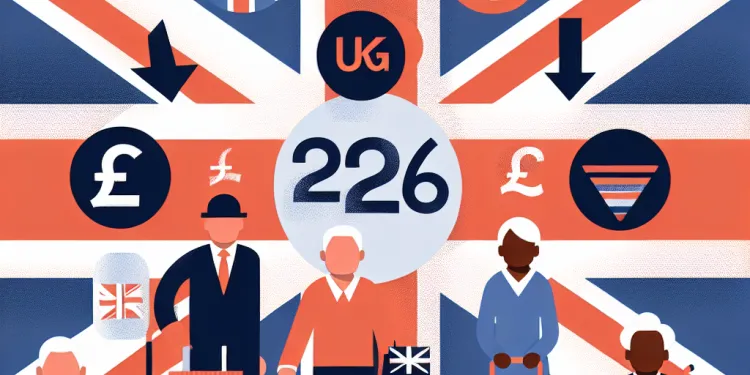
Who will be affected by the state pension age changes in 2026?
Relevance: 66%
-
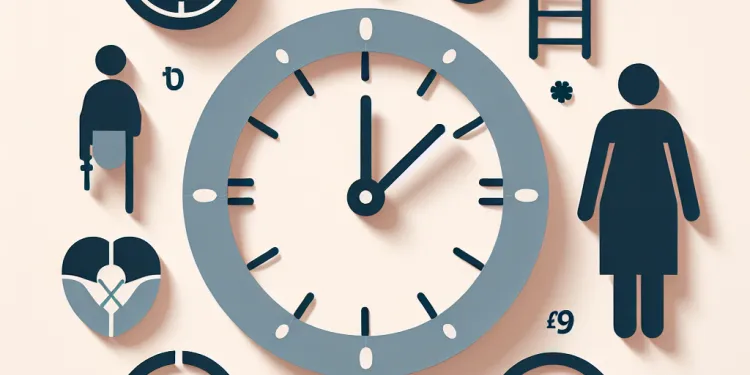
What demographic factors influence changes to the state pension age?
Relevance: 66%
-

Are there credits available for the basic State Pension if I can't work?
Relevance: 63%
-

How can I find out my specific state pension age?
Relevance: 63%
-
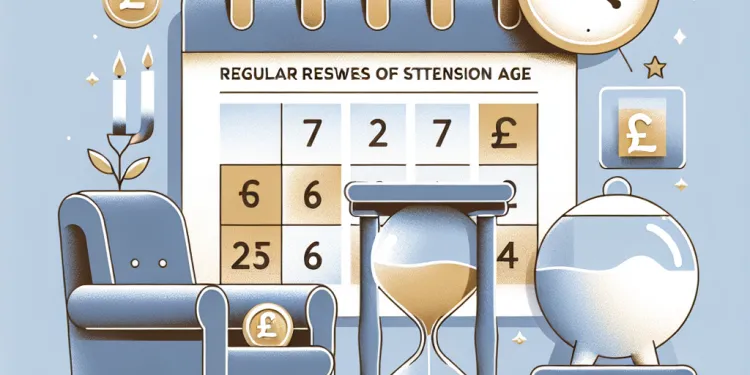
How often does the UK government review the state pension age?
Relevance: 63%
-

Is there any assistance for those who cannot work up to the new state pension age?
Relevance: 62%
-

What age group will first see the state pension age at 67?
Relevance: 61%
-

What is the basic pension in the UK?
Relevance: 59%
-

Will I lose my basic State Pension if I start working after reaching State Pension age?
Relevance: 57%
-
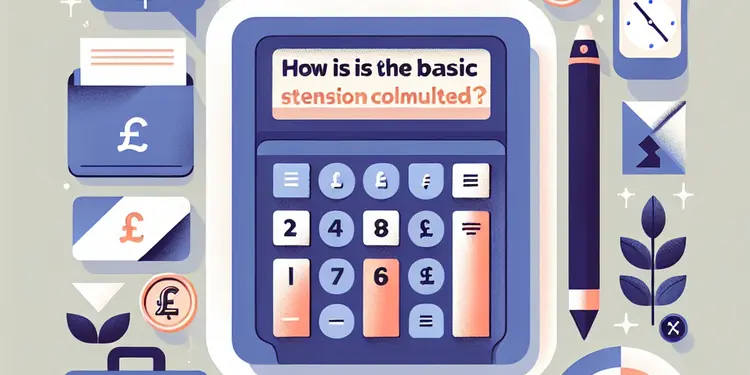
How is the basic State Pension calculated?
Relevance: 57%
-

Are men and women's pension ages equalized?
Relevance: 53%
-
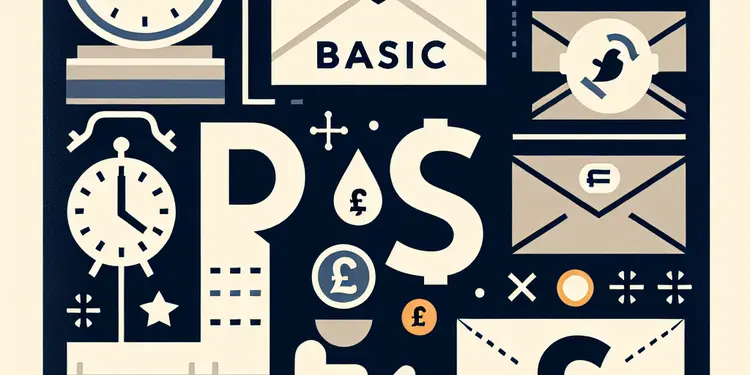
When is the basic State Pension paid?
Relevance: 51%
-

Can I get more than the full basic State Pension?
Relevance: 51%
-

Can I get the basic State Pension if I live abroad?
Relevance: 51%
-

Unfreezing the Truth The UK's Frozen Pensions
Relevance: 51%
-

DWP State Pension Age Changes 2026
Relevance: 49%
-

What is the impact on pensioners if a pension system collapses?
Relevance: 48%
-

Are firefighter pension benefits taxable?
Relevance: 48%
-

What is the typical duration of a promotional balance transfer offer?
Relevance: 47%
-

What Happens When Pensions Go Bust! | Pension System Collapse UK
Relevance: 46%
Understanding the UK State Pension
How Much Will I Get?
The amount you receive from the UK State Pension depends on your National Insurance (NI) contributions throughout your working life. As of the 2023/2024 financial year, the full new State Pension provides £203.85 per week. To qualify for the full amount, you need to have at least 35 qualifying years of NI contributions. If you have less, the amount is proportionally reduced, but certain periods of not working, like caring for a child or relative, can count towards your qualifying years.
If you reached State Pension age before April 6, 2016, you’ll receive the basic State Pension, which pays up to £156.20 per week. This system required a different number of qualifying years, specifically 30, to get the full basic pension. Additional amounts above the basic State Pension can be added if individuals have made certain types of additional contributions.
Will It Last Forever?
The UK State Pension is funded by the current working generation's NI contributions, creating a balance between revenue and expenditure for this benefit. Though reforms have been made to improve its sustainability, future funding remains a concern due partly to an ageing population. As more people reach retirement age and life expectancy rises, the number of retirees outpaces those in the workforce contributing NI, pressuring the system.
While the government is committed to maintaining the State Pension, the actual terms, including eligibility age and amount, are subject to review and change. Successive governments may alter these terms to adapt to economic and demographic challenges. It’s wise for UK residents to consider additional savings and retirement planning, such as private pensions or investments, to ensure long-term financial stability beyond reliance on the State Pension alone.
Understanding the State Pension in the UK
How Much Will I Get?
The amount you receive as a State Pension in the UK depends primarily on your National Insurance (NI) record. If you reached the State Pension age on or after 6 April 2016, you will be eligible for the new State Pension, which is £203.85 per week as of the 2023/2024 tax year. To receive the full amount, you need 35 qualifying years of NICs (National Insurance Contributions), while having less could mean a reduced pension.
If your State Pension age was before 6 April 2016, the basic State Pension applies. The full amount for this is £156.20 per week, but additional pension schemes like the State Second Pension (S2P) or SERPS can increase this amount.
Will It Last Forever?
The State Pension is designed to last throughout your life, continuing until your death. However, its sustainability is often subject to government policy changes and economic factors. It's important to consider additional provisions for retirement, as relying solely on the State Pension may not provide enough income for your needs.
Every few years, the State Pension age or the amount can be adjusted. It's crucial for UK residents to keep informed about changes to ensure proper financial planning for retirement.
Planning for the Future
While the State Pension provides a foundation for retirement income, it's advisable to use it as part of a broader retirement plan. Private pensions, workplace pensions, savings, and investments are essential components of securing financial stability in later life. Regularly reviewing these along with your projected State Pension is critical for adequate preparation.
Staying updated on pension policy changes and understanding your entitlement through the government’s State Pension forecast service can help you make informed decisions about your retirement future.
State Pension UK: What You Need to Know
How Much Will I Get?
The UK State Pension amount you receive largely depends on your National Insurance (NI) record. As of the 2023/24 tax year, the full new State Pension is £203.85 per week. However, this amount can vary. To receive the full amount, individuals typically need a full record of 35 qualifying years of NI contributions. If you have fewer years, you’ll get a proportion of the new State Pension. Those under the old State Pension system may receive a Basic State Pension, with a full pension worth £156.20 per week, potentially topped up by Additional State Pension entitlements such as SERPS or S2P.
Eligibility and Qualification
State Pension is not automatic; you need to claim it. In most cases, claims can be made when nearing State Pension age, which is currently 66 but set to rise in the future. It’s crucial to check your State Pension forecast, which you can do online, to understand what you’ll receive and if there are gaps in your NI contributions, you might fill by paying voluntary contributions.
Will It Last Forever?
The concept of financial 'foreverness' can be misleading. While it's true the UK government intends for State Pensions to be paid for life, sustainability can vary. The government periodically reviews the scheme, which could affect future entitlements or age requirements. Population changes and economic factors can influence long-term viability. Planning for retirement should ideally factor in additional private savings or work-based pensions alongside the State Pension to ensure financial stability throughout retirement.
Additional Considerations
One critical element is inflation adjustments. Every April, the State Pension amount is set to increase based on the highest of three factors, known as the 'triple lock': earnings growth, price inflation (CPI), or 2.5%. This helps maintain purchasing power over time but is subject to policy changes. Lastly, expatriates or those who plan to retire abroad should be aware that pension increases may not apply, depending on reciprocal agreements with the UK.
Understanding the UK State Pension
How Much Will I Get?
The UK State Pension is the money you get when you retire. How much you get depends on your National Insurance (NI) payments while you worked. If you have paid enough NI, you can get the full new State Pension of £203.85 each week for the year 2023/2024. To get this amount, you need to have at least 35 years of NI payments. If you have fewer years, you will get less money. But sometimes, if you were not working because you looked after a child or a relative, these times can still count towards your 35 years.
If you started getting your State Pension before April 6, 2016, you have the basic State Pension. This gives up to £156.20 each week. You needed 30 years of NI payments to get the full basic pension. If you paid more into the system, you might get more than the basic amount.
Will It Last Forever?
The UK State Pension is paid for by people working now through their NI payments. This means the money paid in by workers is used to pay the pensions of retired people. Sometimes, this system can be difficult to manage because there are more retired people than there are working people paying NI. This is because people are living longer. Changes might happen because of this. The government might change the rules about how much you get or when you can start getting it. It is a good idea to save money in other ways too, like having a private pension or savings. This will help you have money when you retire in case the State Pension rules change.
Understanding the State Pension in the UK
How Much Will I Get?
The money you get from the State Pension in the UK depends on your National Insurance record. If you reached State Pension age on or after 6 April 2016, you can get the new State Pension. This is £203.85 each week in 2023/2024. You need 35 years of National Insurance Contributions (NICs) to get the full amount. If you have fewer years, you will get less.
If you reached State Pension age before 6 April 2016, you get the basic State Pension. This is £156.20 each week. You might get more if you were in other pension plans like the State Second Pension (S2P) or SERPS.
Will It Last Forever?
The State Pension is meant to last your whole life, until you pass away. But the rules can change. It's smart to have other ways to get money when you're older, because the State Pension might not be enough for everything you need.
The government may change the State Pension age or amount every few years. It is good for people in the UK to stay informed about any changes. This helps you plan well for when you stop working.
Planning for the Future
The State Pension is one part of money for when you retire. It is good to have more plans, like private pensions, workplace pensions, savings, and investments. These help you have enough money later in life. It’s important to check these plans regularly along with your State Pension estimates.
Keep updated on pension changes. Use the government’s State Pension forecast service to know what you will get. This helps you make smart choices for your retirement.
State Pension UK: What You Need to Know
How Much Will I Get?
The amount of State Pension you get in the UK depends on your National Insurance (NI) record. In the 2023/24 tax year, the full new State Pension is £203.85 each week. But you might get less if you haven't paid enough NI. To get the full amount, you need 35 years of NI payments. If you have fewer years, you will get a smaller amount. If you are in the old State Pension system, you may get the Basic State Pension, which is £156.20 each week. You might also get more if you have other pensions like SERPS or S2P.
Eligibility and Qualification
You do not get the State Pension automatically; you must claim it. You can claim it when you reach State Pension age, which is 66 now but might increase later. It is important to check what you'll get by looking at your State Pension forecast online. If you have gaps in your NI payments, you might be able to pay them voluntarily to get more pension.
Will It Last Forever?
The State Pension is supposed to be paid for your whole life, but the amount and rules can change. The government checks the scheme often, which can change what you receive or when you can get it. How many people there are and the economy can affect pensions too. It is a good idea to save extra money or get a work pension so you have enough money when you retire.
Additional Considerations
The State Pension can go up each April to keep its value. It increases by the highest of these: earnings growth, price inflation (CPI), or 2.5%. This is called the 'triple lock.' But the rules might change. If you move to another country, your pension might not increase, depending on the agreements that country has with the UK.
Frequently Asked Questions
What is the State Pension in the UK?
The State Pension is a regular payment from the government that you can claim when you reach your State Pension age. It is based on your National Insurance contributions.
How much will I get from the State Pension?
The amount you receive depends on your National Insurance record. The full new State Pension is £203.85 per week as of 2023, but the actual amount you get could be higher or lower depending on your contributions.
When can I start receiving the State Pension?
You can start receiving your State Pension when you reach your State Pension age, which is currently around 66, going up to 67 and beyond depending on your birth date.
How are State Pension amounts calculated?
State Pension amounts are calculated based on the number of qualifying years you have on your National Insurance record. You may qualify through NI contributions or credits.
How do I find out my State Pension age?
You can find out your State Pension age by using the State Pension age calculator on the government website.
Will the State Pension last forever?
Once you start receiving your State Pension, it will continue for the rest of your life, but it is periodically reviewed and might be subject to changes by future governments.
Can I increase my State Pension amount?
Yes, you may increase your State Pension by deferring any claims or by paying additional voluntary National Insurance contributions if you have gaps in your record.
What happens if I live abroad?
You can still claim your UK State Pension if you live abroad, but some countries might not receive annual uprates to the pension amount.
Do I need to apply for the State Pension?
Yes, you will need to apply for the State Pension as it is not paid automatically. You should receive a letter from the government around 4 months before you reach State Pension age.
Is the State Pension taxable?
Yes, the State Pension is taxable. However, you do not pay tax on it directly; it’s typically accounted for with your overall income.
Can I receive the State Pension and still work?
Yes, you can continue working while claiming your State Pension. There are no restrictions on earnings once you reach State Pension age.
Will I get my State Pension if I have never worked?
You may still qualify for some State Pension through National Insurance credits, often granted due to contributions from your spouse or periods of illness or unemployment.
What is the difference between the basic State Pension and the new State Pension?
The basic State Pension applies to people who reached State Pension age before April 6, 2016, whereas the new State Pension applies to those who reach it afterward. The amounts and qualification criteria vary.
How does my National Insurance record affect my State Pension?
Your National Insurance record determines your State Pension eligibility and amount. You generally need 10 qualifying years to receive anything, and 35 for the full pension.
Can I inherit State Pension from my partner?
In some cases, you may inherit part of your spouse or civil partner’s State Pension. This depends on your and their National Insurance records and when they reach State Pension age.
What is the State Pension in the UK?
The State Pension is money you get when you are older. It helps you when you stop working. You get it when you reach a certain age.
If you find this hard to read, you can:
- Ask someone to read it with you.
- Use a tool to read it out loud.
- Break the information into smaller parts.
The State Pension is money you get from the government every week. You can start getting it when you are old enough. How much you get depends on the National Insurance money you have paid.
How much money will I get from the State Pension?
The State Pension is money the government gives you when you are older and stop working.
How much you get can be different for each person.
It depends on how many years you have worked and paid National Insurance.
You can use the State Pension forecast tool to find out how much you might get.
If you need help, you can ask a family member or friend to look at it with you.
The money you get depends on your National Insurance record. The full new State Pension is £203.85 each week in 2023. But the amount you get might be more or less. This is because of the money you have paid into National Insurance.
For support: It might help to ask someone you trust to read it with you. You can also use a ruler or finger to follow the words as you read. Some people like to read out loud because it makes it easier to understand.
When can I get my State Pension?
You get your State Pension when you reach a certain age. This age is called "Pension Age".
To find out your Pension Age, you can use the "State Pension Age Calculator" tool online.
Ask someone to help you if you are unsure how to use the tool. They can help you enter your date of birth to see when you can get your Pension.
You can also call a helpline for more help. They can tell you about your Pension Age over the phone.
Remember, your State Pension is money you get every week when you reach the right age.
You can get your State Pension when you reach State Pension age. Right now, this age is about 66 years old. It could be 67 or older, depending on when you were born.
How do they work out how much State Pension you get?
They use a system to work out your State Pension. It looks at how many years you have paid National Insurance. It also checks if you've got credits.
You can use a tool called the 'State Pension Forecast'. It tells you how much you might get when you retire. You can find it online.
If you aren't sure, you can ask someone to help you with the 'State Pension Forecast' tool. They can also explain it to you.
The amount of money you get from the State Pension depends on how many years you have paid into National Insurance. You can get this either by paying or by getting credits.
How can I find out my State Pension age?
Do you want to know how old you will be when you can get your State Pension? Here is an easy way to find out:
- Use a computer and go to the website that tells you about pensions. You can ask someone to help you if you find it hard.
- Type in your date of birth on the website. This is the day, month, and year you were born.
- The website will tell you what age you can get your State Pension.
If you need more help, you can:
- Ask a friend or family member to help you.
- Use a magnifying glass or screen reader if you have trouble seeing.
- Write down the information so you remember it.
You can find out how old you will be when you get State Pension. You can do this by using the State Pension age calculator. This is on the government website.
Will the State Pension last forever?
The State Pension is money from the government for people when they stop working. It is there to help them live. But, will it always be there?
No one can say for sure. The government plans to keep it going, but things in the world can change. So, it might not last forever.
If you are worried, it’s a good idea to save some money on your own. You can also talk to someone who knows a lot about money. They can help you make a plan for the future.
When you start getting your State Pension, you will get it for the rest of your life. It might change sometimes if the government makes new rules.
Can I get more money from my State Pension?
Do you want to know if you can get more money from your State Pension? Here is how:
- If you have worked more years, you might get more pension money.
- You can check if you have paid enough National Insurance.
- You can also wait a bit longer before you start getting it. This might mean you get more money each week.
Need help? Ask someone you trust to help you look online for more information.
You can use a calculator online. It can help you see how much money you might get.
Yes, you can make your State Pension bigger. You can do this by waiting to claim it or by paying extra money into your National Insurance if you missed some payments before.
What if I live in another country?
If you live in a different country, some things might change.
Here are some things you can do:
- Ask someone you trust for help.
- Use simple language tools, like a dictionary or online translator.
- Look for local help or friends in your new country.
Don't worry, you can still get support if you need it!
If you live in another country, you can still get your UK State Pension. But, in some countries, your pension might not go up each year.
Do I need to ask for the State Pension?
The State Pension is money you get when you are older. It helps you pay for things when you stop working.
Most people get the State Pension automatically. But some might need to ask for it.
Check if you need to fill out a form or if it comes to you. You can ask for help if you are not sure.
Try using a calendar to mark the date you can get your pension. You can also ask a family member or friend to help you.
You need to ask for your State Pension because it does not come automatically. The government will send you a letter about 4 months before you are old enough for the State Pension.
If you need help, ask someone you trust. You can also use tools online to remind you or make notes on a calendar.
Do you have to pay tax on the State Pension?
The State Pension is money you get when you stop working. You might have to pay some of this money back as tax. It depends on how much money you have.
If you have questions, a friend or family member can help you. You can also use a calculator online to see if you need to pay tax.
Yes, you have to pay tax on the State Pension. But you don't pay the tax straight from the pension. It is usually added to the rest of your income to work out how much tax you need to pay.
If you find reading hard, you can use a ruler or your finger to help guide you along each line. You can also ask someone to help explain things or use text-to-speech tools to read it out loud.
Can I get the State Pension and still have a job?
Yes, you can get your State Pension and still work. This means you can have money from a job and your pension at the same time.
If you need help understanding this, you can:
- Ask a friend or family member to explain.
- Use apps that read text out loud.
- Highlight important words in the text.
Yes, you can keep working when you get your State Pension. There are no rules about how much money you can earn after you reach State Pension age.
Can I get a State Pension if I have never worked?
You can still get some State Pension even if you have never worked.
But you might get less money.
Here are some useful tips and tools:
- Talk to a helper at a service center about your pension.
- Use websites that explain pensions in simple words.
- Ask family or friends to help read and understand the information.
You might still get some State Pension. This can happen because of National Insurance credits. These credits are given to you if your husband or wife pays National Insurance, or if you have been sick or out of work.
Here are some tips to help you understand better:
- Ask someone you trust to explain things to you.
- Use pictures or drawings to help make sense of the words.
- Look for videos that explain things simply.
How is the basic State Pension different from the new State Pension?
The basic State Pension is the old way people got money when they stopped working.
The new State Pension is the new way people get money when they stop working.
If you want help to read more, you can ask someone to read with you or use a computer to read the text out loud.
The basic State Pension is for people who were old enough to get a pension before April 6, 2016. The new State Pension is for people who became old enough to get it after this date. The money you get and the rules for getting it are different for each one.
If this is hard to understand, you can ask someone to help you read it or use online tools that read text out loud.
How does my National Insurance record affect my State Pension?
Your National Insurance record is important. It helps decide how much money you get when you retire, called a State Pension.
Here’s how it works:
- The more years you pay National Insurance, the more money you can get in your State Pension.
- If you have gaps (times when you did not pay), you might get less money.
To check your National Insurance record, you can visit the government website or ask for help from a friend or family member.
There are also tools online that can help you understand your record better.
Your National Insurance record shows if you can get a State Pension and how much it will be. You usually need at least 10 years of payments to get any money. You need 35 years of payments to get the full amount.
If you find reading tricky, try using a ruler or your finger to follow the line. Reading with a friend or family member can also help. You can use apps or audiobooks to hear the text out loud.
Can I get my partner's State Pension?
Sometimes, you can get some of your husband’s or wife’s State Pension. This can also happen if you have a civil partner. It depends on both of your National Insurance records and when they start getting their State Pension.
Useful Links
This website offers general information and is not a substitute for professional advice.
Always seek guidance from qualified professionals.
If you have any medical concerns or need urgent help, contact a healthcare professional or emergency services immediately.
Some of this content was generated with AI assistance. We’ve done our best to keep it accurate, helpful, and human-friendly.
- Ergsy carfully checks the information in the videos we provide here.
- Videos shown by Youtube after a video has completed, have NOT been reviewed by ERGSY.
- To view, click the arrow in centre of video.
- Most of the videos you find here will have subtitles and/or closed captions available.
- You may need to turn these on, and choose your preferred language.
- Go to the video you'd like to watch.
- If closed captions (CC) are available, settings will be visible on the bottom right of the video player.
- To turn on Captions, click settings .
- To turn off Captions, click settings again.
More Items From Ergsy search
-

Will the state pension amount change with the age increase?
Relevance: 100%
-

Is there a difference between the basic State Pension and the new State Pension?
Relevance: 86%
-

How do I claim the basic State Pension?
Relevance: 78%
-

Will I qualify for the new state pension?
Relevance: 78%
-

Who is eligible for the basic State Pension?
Relevance: 77%
-

State Pension UK | How much will I get? | WILL IT LAST FOREVER?!?
Relevance: 76%
-

Is the basic State Pension enough to live on?
Relevance: 76%
-

Do I pay tax on the basic State Pension?
Relevance: 75%
-

How much is the full basic State Pension per week?
Relevance: 74%
-

Can I defer my basic State Pension?
Relevance: 74%
-

Can my spouse inherit my basic State Pension?
Relevance: 74%
-

Can I get the basic State Pension if I’m self-employed?
Relevance: 74%
-

When will the state pension age increase to 67?
Relevance: 71%
-

What are the state pension age changes in 2026 in the UK?
Relevance: 70%
-

What is the state pension age in the UK in 2026?
Relevance: 70%
-

How much extra will I get if I defer my basic State Pension?
Relevance: 69%
-

What is the new planned state pension age after 2028?
Relevance: 69%
-

Are there any changes to the state pension age in 2026?
Relevance: 67%
-

How many National Insurance contributions do I need for the basic State Pension?
Relevance: 67%
-

Can I receive the basic State Pension if I have less than 30 qualifying years?
Relevance: 67%
-

Who will be affected by the state pension age changes in 2026?
Relevance: 66%
-

What demographic factors influence changes to the state pension age?
Relevance: 66%
-

Are there credits available for the basic State Pension if I can't work?
Relevance: 63%
-

How can I find out my specific state pension age?
Relevance: 63%
-

How often does the UK government review the state pension age?
Relevance: 63%
-

Is there any assistance for those who cannot work up to the new state pension age?
Relevance: 62%
-

What age group will first see the state pension age at 67?
Relevance: 61%
-

What is the basic pension in the UK?
Relevance: 59%
-

Will I lose my basic State Pension if I start working after reaching State Pension age?
Relevance: 57%
-

How is the basic State Pension calculated?
Relevance: 57%
-

Are men and women's pension ages equalized?
Relevance: 53%
-

When is the basic State Pension paid?
Relevance: 51%
-

Can I get more than the full basic State Pension?
Relevance: 51%
-

Can I get the basic State Pension if I live abroad?
Relevance: 51%
-

Unfreezing the Truth The UK's Frozen Pensions
Relevance: 51%
-

DWP State Pension Age Changes 2026
Relevance: 49%
-

What is the impact on pensioners if a pension system collapses?
Relevance: 48%
-

Are firefighter pension benefits taxable?
Relevance: 48%
-

What is the typical duration of a promotional balance transfer offer?
Relevance: 47%
-

What Happens When Pensions Go Bust! | Pension System Collapse UK
Relevance: 46%


